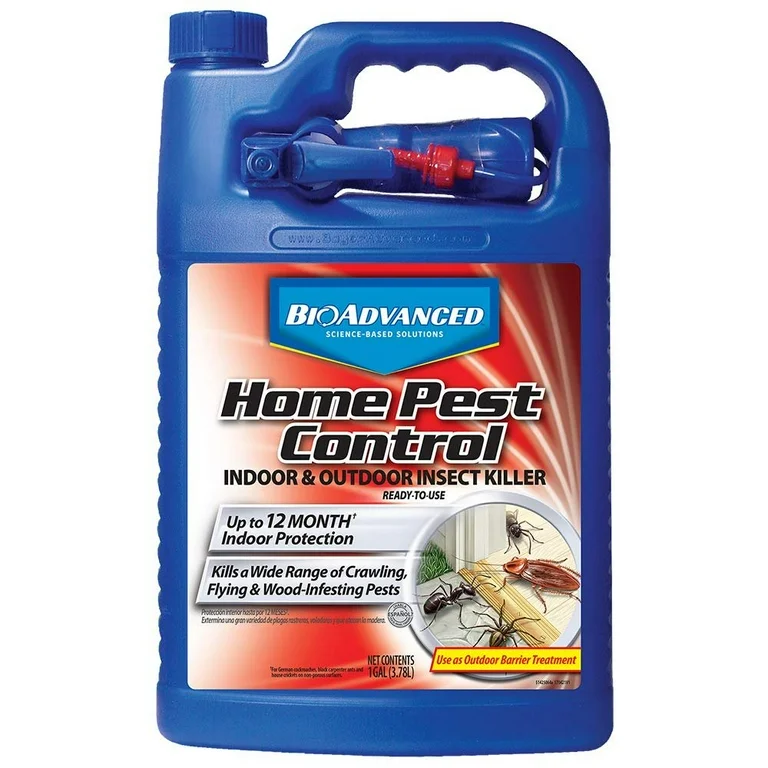A1 Charlotte Pest Control Companies - Your Neighborhood Pest Experts
Wiki Article
Bed Pest Therapy Break Down: Comparing Chemical Vs. Non-Chemical Solutions
In the realm of insect control, especially when managing the consistent problem of bed pests, the choice between chemical and non-chemical treatment solutions can be a critical one. Both approaches offer distinct benefits and disadvantages, affecting factors such as effectiveness, security factors to consider, and general price. By checking out the nuanced information of each technique, a more clear understanding of which path to go after in resolving a bed insect infestation can be attained.Effectiveness of Chemical Treatments
Chemical treatments for bed pest invasions have actually been extensively identified for their rapid and potent efficiency in eliminating these pests. When thinking about the effectiveness of chemical therapies, it is vital to recognize that they can supply a complete and fast option to a bed bug trouble.Additionally, chemical therapies have the benefit of offering recurring impacts, indicating that they can proceed to get rid of bed pests even after the initial application. This residual action is particularly useful in combating any kind of potential re-infestations. Furthermore, the fast action of chemical therapies can bring relief to people facing severe bed pest problems, allowing them to restore control of their home promptly.
Safety Worry About Chemical Solutions
When making use of chemical remedies for bed pest treatment is ensuring the safety of occupants and the environment,One crucial element that needs mindful factor to consider. While chemical treatments can be reliable in eradicating bed insects, they may position dangers if not managed effectively. Among the key safety and security worries with chemical remedies is the possible damage they can trigger to human health. Direct exposure to particular chemicals utilized in bed pest treatments can cause breathing issues, skin irritability, or various other unfavorable responses, particularly in people with pre-existing problems or level of sensitivities. Additionally, improper application or dose of chemical pesticides can result in hazardous residues sticking around in the treated area, presenting long-lasting wellness threats to passengers.In addition, the ecological effect of chemical options is one more substantial factor to consider. Some pesticides made use of in bed insect treatments might be dangerous to helpful pests, wildlife, and ecological communities if they seep into the soil or water systems. It is vital to utilize chemical treatments carefully, complying with safety guidelines, and considering much less toxic options to alleviate these threats and ensure the efficient and risk-free monitoring of bed pest invasions.
Benefits of Non-Chemical Methods
Considering the prospective safety worries and ecological influence connected with chemical services for bed pest treatment, discovering non-chemical strategies offers a promising alternative with a number of distinctive benefits. Non-chemical methods use a safer choice see it here for homes, especially those with people, pet dogs, or youngsters conscious rough chemicals. These strategies eliminate the dangers of exposure to harmful substances, decreasing the capacity for negative health impacts. Furthermore, non-chemical therapies are environmentally friendly, as they do not add to air or water air pollution, making them a lasting selection for bug control.Furthermore, non-chemical remedies can be effective in targeting bed bugs, consisting of hard-to-reach locations where chemical therapies might not penetrate - A1 pest control services charlotte. Methods such as heat therapy, vacuuming, vapor cleansing, and cushion coverings offer thorough elimination without the usage of hazardous chemicals.
Limitations of Non-Chemical Treatments

Furthermore, non-chemical therapies usually call for several applications to accomplish effective obliteration. This can be taxing and may not constantly guarantee total elimination of all bed bugs and their eggs, especially in surprise or hard-to-reach locations.
Additionally, the success of non-chemical therapies greatly depends on proper application and thoroughness, which can be challenging for individuals without expert know-how. Insufficient application of non-chemical methods might result in insufficient elimination, causing relentless infestations and the click for source requirement for added therapies.
Therefore, while non-chemical therapies have their advantages, it is essential to recognize these constraints and consider them when figuring out the most efficient technique for managing bed bug problems.
Price Comparison: Chemical Vs. Non-Chemical Options
Given the constraints associated with non-chemical therapies, a crucial aspect to review in the context of bed insect management is the cost contrast in between chemical and non-chemical options. In contrast, non-chemical therapies like heat treatment or steam can be much more costly, with expenses varying from $1,000 to $6,000 for an entire home. While the first price of chemical treatments may appear lower, several therapies might be required to fully eradicate the infestation, possibly enhancing the total expense.Conclusion

Considering the possible safety concerns and ecological effect linked with chemical remedies for bed bug treatment, checking out non-chemical methods provides an appealing option with a number of distinct advantages.Offered the limitations connected with non-chemical treatments, an important facet to assess in the context of bed bug management is the price comparison in read this between chemical and non-chemical alternatives. In contrast, non-chemical treatments like warmth therapy or steam can be more costly, with costs ranging from $1,000 to $6,000 for an entire home. While the first cost of chemical treatments might seem lower, numerous treatments may be required to fully remove the problem, possibly increasing the general cost.In conclusion, when comparing chemical and non-chemical bed insect treatment alternatives, it is necessary to take into consideration efficiency, safety and security, benefits, constraints, and price.
Report this wiki page